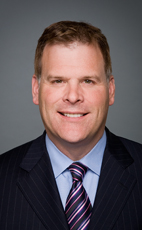Mr. Speaker, I appreciate the questions from my friend, the member for Ottawa South. I do have to admit from time to time that I am called upon to respond to certain questions that are asked by the opposition. There are not as many as there used to be, thanks to the appointment of the new Minister of Transport, Infrastructure and Communities, who I think is doing a fine job. The new Minister of Transport has a big challenge to tidy up the department. The only minister who has a bigger challenge to deal with is the new Minister of Indian Affairs and Northern Development.
On the issue of decorum, I think there has been some degree of success. I will congratulate the Liberal House Leader . He has perhaps been more successful than I have in reining in the number of interjections during question period, and I undertake to him and to the House to continue to work in that regard. I think there has been a considerable reduction in interjections. Sometimes the members of the government or members of the opposition will bring out those types of interjections, but I will commit to continue to work with him and with our colleagues in the Bloc and the NDP on reducing them. I think we have met with some success. We do have more room to grow, but I will commit to continue to work in that regard. In many respects, that was a big part of the motion the House adopted last night, the motion standing in the name of the member for Wellington—Halton Hills, and I see him smiling at me now.
Much work has been accomplished, but much work remains to be done in that regard.
When government orders resumes after my statement, we will call Bill C-36, the consumer product safety bill. We have an agreement to send it to committee after one speaker per party, and I will be moving the appropriate motion in a few minutes.
I should point out that if we cannot come together to try to protect children and keep them safe, we do not have any place here. I am very pleased with the consultations with all parties on that. I think they will be welcomed, particularly by Environmental Defence, which has been championing these issues for some time.
Following Bill C-36, we will resume the debate which began this morning on Bill C-47, sustaining Canada's economic recovery act. Other bills scheduled for today, if necessary, are Bill S-9, tackling auto theft and property crime, and Bill C-39, ending early release for criminals.
Tomorrow, we will continue with the business before us today.
Next week, as the member noted, is a constituency week.
When we return we will continue, if necessary, with Bill C-47. The Canada-Panama free trade agreement is also on the agenda.
Thursday, October 21 shall be an allotted day, as I have told our friends in the Bloc Québécois.
Mr. Speaker, as I said earlier, with respect to Bill C-36, I believe you will find unanimous consent for the following motion. I move:
That, notwithstanding any Standing Order or usual practice of the House, a member from each recognized party may speak for not more than 20 minutes on the second reading motion of Bill C-36, An Act respecting the safety of consumer products, following which the said bill shall be deemed read a second time and referred to the Standing Committee on Health.

